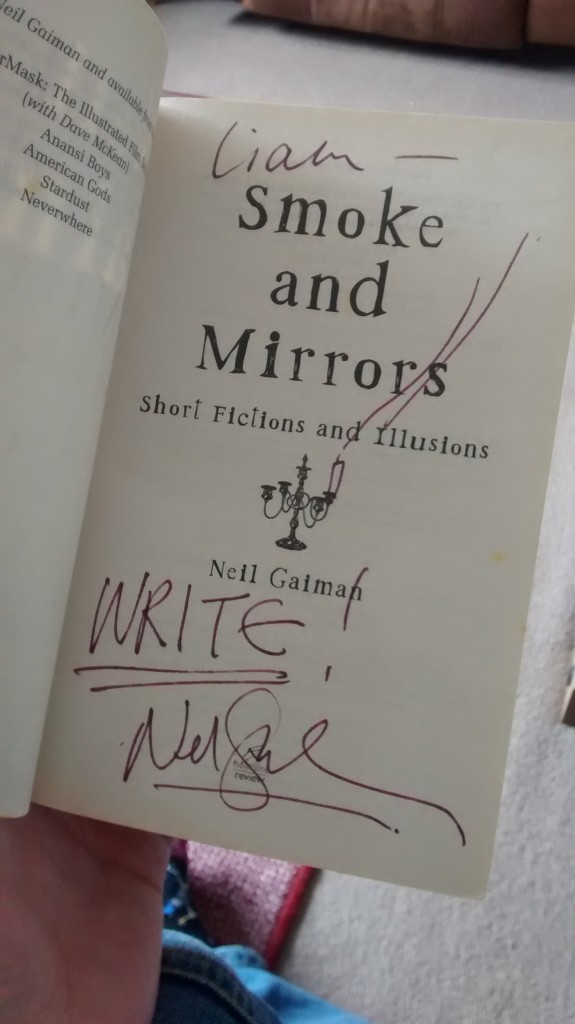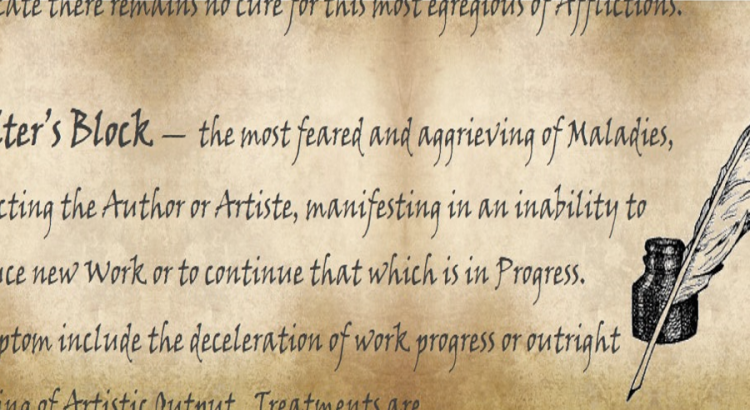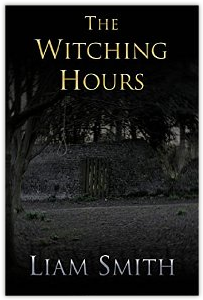Earlier this year I went through a bit of a dry spell on the writing front. I took about a month off my usual routine due to some heavy targets in my day job and found myself unable to get off the ground again with any kind of writing. I’d start, stumble, fumble for words and grind to halt once more.
Diagnosis: Writer’s Block
I found although I was making time to write, and even knew what I wanted to write, the words weren’t quite flowing. It wasn’t that I didn’t have the ideas, or the motivation, or even time to write, it was just that I was really having to push to get anything down, and I wasn’t enjoying it. This, for me, is writer’s block: an inconvenient affliction that prevents you from writing despite your best intentions. But good news – I managed to recuperate with a few simple steps. Here’s what set me on the road to recovery perhaps it could be of some help to you too.
Top tips for tackling writer’s block

Step One – Stop writing
Alright, this one is a direct contradiction to my usual method of writing. I try to be a dogged writer, powering on even when it’s hard to do so, and usually that suits me fine. I like just cracking on without looking for distractions or procrastinations; it keeps my momentum up and inspires me to keep going. However, in the most parched moments of my dry spell, writing was really becoming a chore. Don’t get me wrong, writing is work and it should be a challenge, but it shouldn’t be an energy-sapping exercise in sloggery. So, if it does become painful, stop doing it. And proceed to Step Two.
Step Two – Read something immersive
I don’t know about you, but I find reading is my greatest inspiration. I read a good story and I want to write one. During my dry spell I was reading some more challenging books – high fantasy novels, popular science, etc. I do enjoy reading all kinds of genres and styles, but I think reading books that were more at the peripherals of my interest might have contributed to the loss of my usual mojo. So I sunk myself a fast paced thriller (John Marr’s The One) and revisited some of my favourite Neil Gaiman shorts (from Smoke and Mirrors). The combination of slick prose and nostalgic magic reminded me why I like to write, and what I want to write. After taking it easy with some good fiction, I felt ready to start writing again. But…

Step Three – Don’t rush
I started writing again when I felt a new story idea hit me* and got stuck in whilst the iron was hot. But I wouldn’t rush the return to writing. I don’t know what inspires you pick up your pen, or keyboard, or quill, but if you’re anything like me you’ll find yourself in kind of writing mode where the words just seem to do their thing with only the slightest of shepherding from your brain. I didn’t decide to try and write again, starting with a blank page on my Kindle and valiantly attempting a new story: I waited for that inspiration to strike then rode that wave. I’m still riding it, and loving it. Better than diving in before I was quite ready.
Step Four – Do push yourself
Once you’re up and running, don’t rest on your laurels. Don’t use your writer’s block as an excuse to do less than you know you can – it’s already claimed enough of your time. Whatever your usual target is, whether it’s wordcount, hours in a day, number of stanzas or whatever, get back to it. You know you can do it, so why not? We’ve waited for and facilitated that spark of inspiration rather than easing back into a routine – you should be raring to go.
The best cure is prevention
I worked though writer’s block in my own way, and I’m back to my usual writery self again, but I can pinpoint where it all went wrong. During the busy period at my job I found it hard to fix my mind on something other than work and, funnily enough, it was stopping writing that stopped from being able to write. Of course, you can’t be writing all the time, but I think if I had at least kept some ideas ticking over or kept writing little fragments I might have maintained a grip and stopped writer’s block from taking root quite so deeply as it did. I think I’ll handle things a bit differently when I’m next struggling to fit in writing alongside the other necessaries of life.
Well, I hope that helps, or at least provides a sympathetic ear. I don’t think I’ve met a writer who hasn’t complained of some kind of writer’s block at some point. What helps you through it? How do you cure writer’s block?
*This blog post orbits around a project that I’ve started. You remember The Patchwork Carnival, my poetry cycle ebook from 2015? I want to write a prose piece to accompany it in a re-release for paperback. The poetry is too short to warrant a printed edition on its own but, bolstered with a short story or novella, it should make for a lovely little book. I found it hard to write the story I had originally planned, about a Victorian doctor who discovers a dark secret in a travelling medical freakshow, and have now jettisoned it in favour of a contemporary tale with the working title The Carnival by Moonlight. Watch this space.

